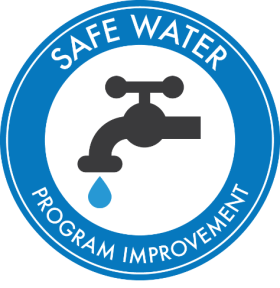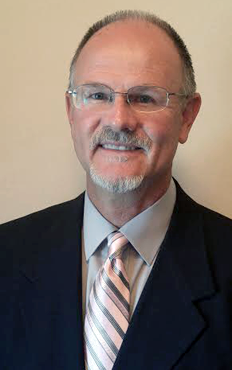
SWPI101: Introduction: The 10 Essential Environmental Public Health Services and Unregulated Drinking Water Programs
Course Description:
SWPI101: Introduction: The 10 Essential Environmental Public Health Services and Unregulated Drinking Water Programs is first in a nine-course learning series.
This course will introduce the 10 Essential Environmental Public Health Services (EEPHSs) as the framework for making program improvements when managing unregulated drinking water systems (UDWSs).
Target Audience
Public Health, First Responders, Emergency Response and Preparedness Professionals and Healthcare Practitioners
Learning Objectives
- Explain the core functions of public health
- Explain the 10 Essential Environmental Public Health Services (EEPHSs)
- Describe how the 10 EEPHSs are used to improve environmental public health practice in the management of UDWSs
Instructor:

Captain Mark D. Miller, MPH, RS, USPHS (Retired)
Captain Mark D. Miller, MPH, RS, USPHS (Retired) received a Bachelor of Science in Environmental Health from East Central University, Ada, Oklahoma in 1984 and a Master of Public Health degree from the University of Texas Health Science Center at Houston in 1993. He began his career in 1985 in wastewater treatment for Oklahoma City. In 1988, he accepted a commission with the United States Public Health Service (USPHS) and served 26 years until his retirement in 2014. He currently serves as a private consultant, concentrating on environmental health training and development.
During his USPHS career, Captain Miller was assigned to various positions throughout the nation with the Indian Health Service, the Agency for Toxic Substances and Disease Registry, and the Centers for Disease Control and Prevention (CDC).
Captain Miller served as a Senior Environmental Health Scientist for the Environmental Health Services Branch of the CDC National Center for Environmental Health in Atlanta, Georgia. His duties included assistance and consultation to local, state, and tribal professionals and national organizations on issues related to environmental health, terrorism, and emergency response. He responded to numerous outbreaks of environmental-related disease, public health crises and natural disasters. He served as technical advisor for several national committees on issues related to environmental health, terrorism and emergency preparedness. He is the original founder and developer of CDC’s highly successful Environmental Health Training in Emergency Response (EHTER) program and developed EHSB’s informational website on terrorism and emergency preparedness specifically for environmental health professionals.
Available Credit
- 1.00 Participation/CETulane Professional and Continuing Education (PaCE) awards 1.00 hour(s) of credit for completing SWPI101: Introduction: The 10 Essential Environmental Public Health Services and Unregulated Drinking Water Programs
Price
Required Hardware/software
System Settings
This course is designed to work most effectively if your computer and internet connection meet certain minimal requirements. This course can be accessed using a Windows 10 PC or a Mac with High Sierra1, Mojave, or Catalina. Pop-up blockers should be disabled when viewing the course. Internet Explorer 11 (for Windows 10), or the current version of Google Chrome, Mozilla Firefox, or Apple Safari (for Windows 10 and or Mac) is required. Many of our courses require Java and JavaScript enabled.
Links to External Websites
Links to websites outside this course will open in a new window or tab. Some browsers may minimize the course window. If this occurs, maximize the course window to return to the course.
Adobe Acrobat Reader (for desktops and laptops)
Adobe Acrobat Reader is required to access some documents in this course. If you need to download a free copy of Acrobat Reader, click here.
Internet Connection Speed
A minimum download speed of 1.5 Mbps is recommended for an optimal experience, which is commonly the speed associated with a basic DSL or a cellular/satellite connection. A faster connection, such as cable or fiber service, with further enhance your online experience. A Wi-Fi connection is generally acceptable, but it is dependent upon one of the two services mentioned above. You can check your internet connection speed at http://www.speedtest.net/.

 Facebook
Facebook X
X LinkedIn
LinkedIn Forward
Forward